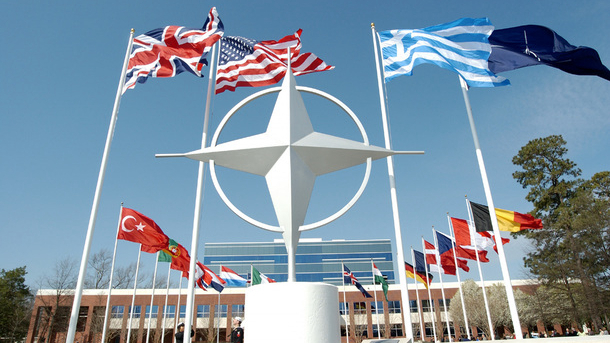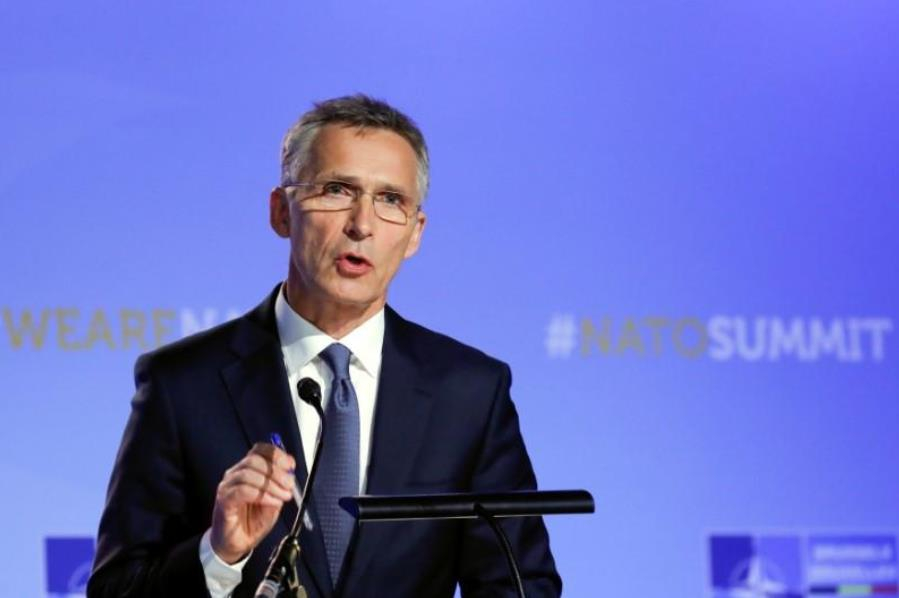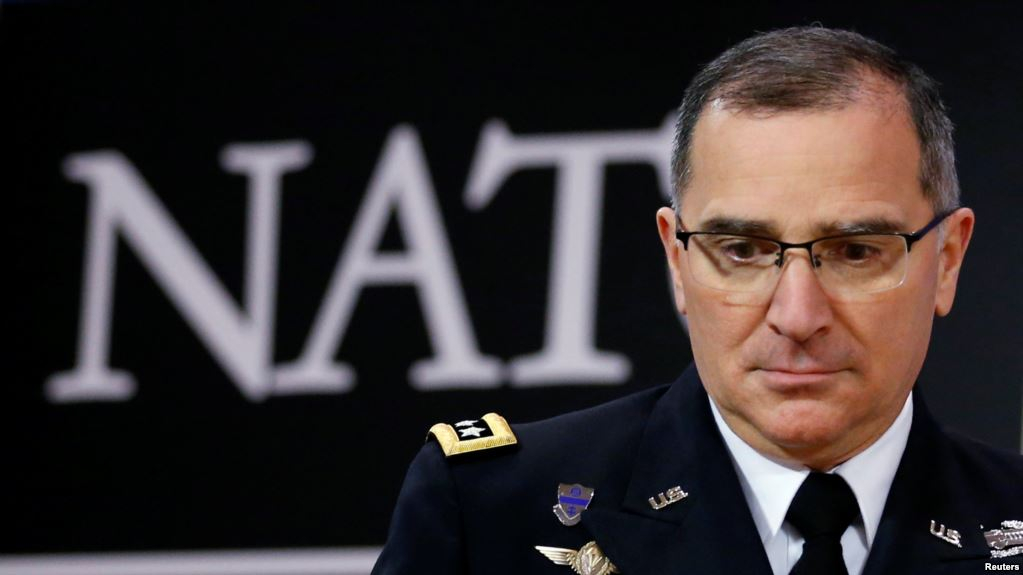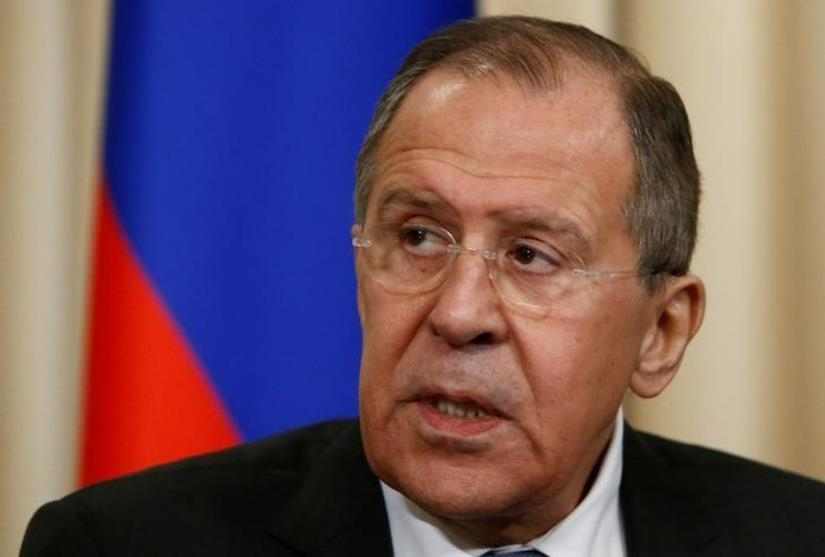
Politics
14:11, 02-Oct-2018
NATO defense ministers to discuss delicate relations with Russia
Updated
14:11, 05-Oct-2018
By Li Deyi

Russia is recently described as the top threat to the North Atlantic Treaty Organization (NATO). As a result, "deterrence and defense" is believed to be a loaded discussion in the NATO defense ministers conference in Brussels from Wednesday to Thursday. But how likely will Russia and NATO go back to Cold War days?
According to NATO's official website, the first event of the two-day conference is going to be background briefing on NATO-Russia relations. Besides, burden sharing as well as cyber and hybrid threats will be among the discussions, Bloomberg's preview report said.

NATO Secretary General Jens Stoltenberg holds a news conference after participating in the NATO Summit in Brussels,July 12, 2018. /Reuters Photo
NATO Secretary General Jens Stoltenberg holds a news conference after participating in the NATO Summit in Brussels,July 12, 2018. /Reuters Photo
Upgrading command structure
In the middle of the year, a strategy adding to NATO's deterrent against Russia was announced. NATO defense ministers agreed to establish two new commands, which will be essential for alliance reinforcements.
NATO Secretary General Jens Stoltenberg said on June 7 that the new joint force command for the Atlantic will be based at Norfolk in the US, and another new enabling command will be based in Ulm, Germany.
The command in Ulm, a logistics command, aims at moving troops more quickly across Europe in any possible conflict. The other one, a North Atlantic planning and strategy command, keeps shipping lanes safe from enemy submarines.
It was not the first time to read about the two commands. Some reports in February said that these two new military headquarters mark the first upgrade of the alliance's command structure since the end of the Cold War.
The decision reflects escalating worries across Europe and within NATO over Russia's increased military presence and patrols in the Atlantic region, the Guardian said.
The two headquarters are amid renewed Russian muscle-flexing moves in Ukraine, with Crimea being merged into Russia in 2014 and the Kiev government battling Kremlin-backed separatists in eastern Ukraine, Bloomberg said.

File photo of Gen. Curtis Scaparrotti, NATO's Supreme Allied Commander /Reuters Photo
File photo of Gen. Curtis Scaparrotti, NATO's Supreme Allied Commander /Reuters Photo
Refocusing on Russia
In recent years, NATO has refocused on deterring Russia, the Business Insider noted.
Stoltenberg once told Defense One that NATO has combat-ready battle groups in the eastern part of the alliance, in the Baltic countries and Poland.
For the first time in NATO's history, the organization sends a very clear message that there is no way that something similar to what happened in Ukraine can happen in those countries, Stoltenberg stressed.
"Previously my headquarters didn't have an Operations Center that was manned 24/7, but we do now," said Gen. Curtis Scaparrotti, NATO's Supreme Allied Commander.
When interviewed by Breaking Defense during NATO's Military Committee Conference in Warsaw last week, Scaparrotti said that Russia is "absolutely" the Western alliance's number one national security threat.
Scaparrotti noted that NATO's eastern allies bordering Russia remain the focus of Moscow's most malign activities and threats, to include Poland and the Baltic states of Estonia, Lithuania, and Latvia.

File Photo of Russian Foreign Minister Sergei Lavrov /Reuters Photo
File Photo of Russian Foreign Minister Sergei Lavrov /Reuters Photo
Balancing with Russia
Earlier September, Russian Foreign Minister Sergei Lavrov said in an interview on Russian Channel One TV that the US triggered NATO's movement towards Russian borders. And not just by admitting new members from among Russia's neighbors, but also by deploying military infrastructure along the borders.
At the end of last month, Stoltenberg met Lavrov at the sidelines of the UN General Assembly in New York amid serious disagreements on a number of issues on September 25.
Lavrov said that they discussed the "current state of political dialogue, and prospects for Russia-NATO relations."
NATO wants to avoid a return to Cold War days, Stoltenberg said, adding that improving communication between NATO and Russia can help defuse tensions. He said that meetings in the NATO-Russia Council will be soon.
Stoltenberg told RT that the meeting proved to be "useful." However, AP said that Stoltenberg announced no specific progress after the meeting but said they agreed to continue contacts.
During their meeting, the plan for a permanent US military base in Poland was not discussed, which Russia opposed.
A newly posted report said that Russia is disturbed by the desire to open a new line of confrontation in Europe, this time in the Balkans.
According to World Bulletin, Lavrov said that the countries of the region are insisting on joining NATO, adding European and American leaders are personally campaigning for the introduction of Balkan countries into the Euro-Atlantic Alliance.
(With inputs from agencies)

SITEMAP
Copyright © 2018 CGTN. Beijing ICP prepared NO.16065310-3
Copyright © 2018 CGTN. Beijing ICP prepared NO.16065310-3